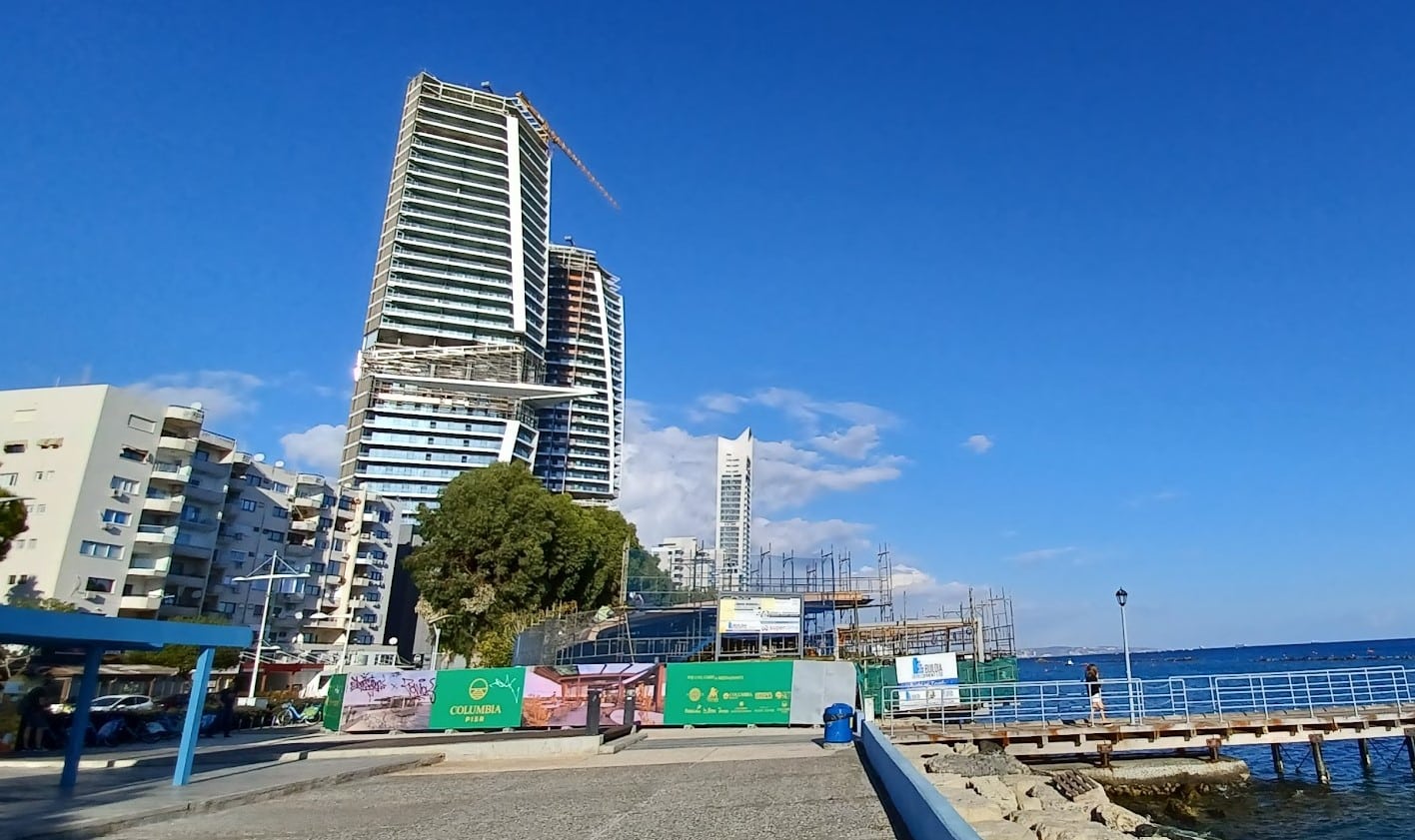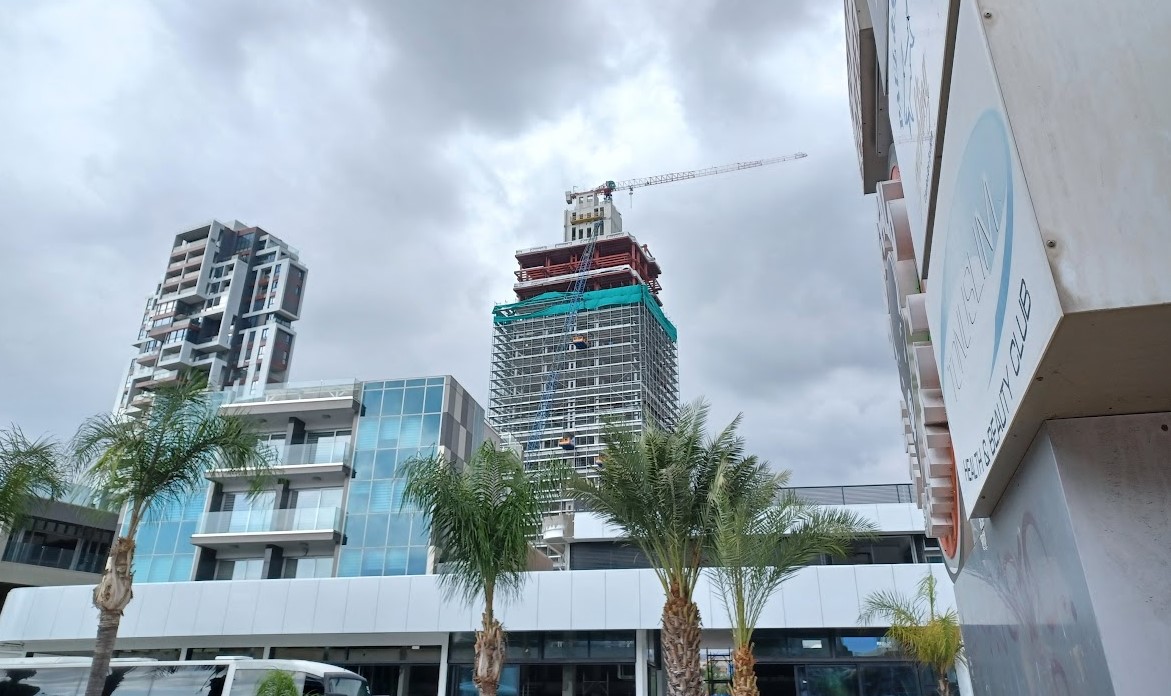Construction sector described as the engine of the Cypriot economy
Cyprus Land and Building Developers Association (LBDA) president Michalis Hadjipanayiotou on Thursday lauded the local property sector’s robustness, reflected in its ability to navigate numerous challenges, while continuing to contribute to the country’s economic growth.
Hadjipanayiotou’s comments were delivered during his speech at the association’s annual general assembly, held on November 16.
“In these 40 years, our industry has experienced significant growth, evolution, and modernisation,” he said, noting, however, that “it has also faced both small and very large challenges and difficulties”.
“With each new challenge, our association stood present, leveraging the knowledge and expertise, as well as the focus on external matters, of its members, it contributed in collaboration with the relevant authorities to shaping positions and proposals,” he added.
He stated that the association has always been aiming to “strengthen efforts towards modernising the industry, thus remaining a pillar of economic development”.
The assembly, which marked the 40th anniversary of the Cyprus Land and Building Developers Association (LBDA), witnessed the presence of several prominent figures.
These included president Nikos Christodoulides, president of the Scientific and Technical Chamber of Cyprus (Etek) Constantinos Constanti, and the president of the Employers and Industrialists Federation (Oev) Antonis Antoniou.

Cyprus Land and Building Developers Association (LBDA) Annual General Assembly
Addressing the assembly, Hadjipanayiotou highlighted the real estate and construction industry’s integral role in the country’s economic development and progress.
He praised the sector’s resilience in the face of challenges, citing its significant contribution through attracting investments, employing thousands, and helping Cyprus to evolve.
“We are particularly proud that our association members have contributed collectively to over 80 per cent of the real estate market, building the modern Cyprus. They have shaped the contemporary profile of our country. A profile that has made Cyprus a regional business and investment centre,” Hadjipanayiotou said.
“Marinas, golf courses, office spaces, modern and environmentally friendly residential and commercial properties, and small and large developments are just a few examples of the many developments that compose the new Cyprus,” he added.
Hadjipanayiotou explained that during the last four years, the construction industry has faced a series of serious challenges, including economic crises, health crises, and geopolitical developments with global impact.
“Each time, we had to adapt to new circumstances and create new perspectives to mitigate the consequences both in the industry and in the Cypriot economy,” he said.
“Despite the difficulties and obstacles, the industry demonstrated flexibility, and resilience, and remained upright,” he added.

He explained that the construction sector has significantly contributed to the country’s development, noting that its share of the Gross Domestic Product (GDP) has ranged from 15 to 17 per cent, on average.
“This confirms the significant role it plays in the Cypriot economy,” he said, noting that “even amid the aforementioned changes and challenges, its contribution to the GDP remained at the same high levels, proving its strong foundations”.
He also touched on the construction sector’s contribution to Cyprus’ employment sector.
Citing Department of Social Insurance data for 2023, he said that employees working in the construction industry amount to almost 43,000, the majority of whom are Cypriot citizens.
“Therefore, the construction industry has rightfully been characterised as the ‘engine’ of the Cypriot economy. However, the importance of the industry extends beyond economic development and into maintaining Cyprus’ social cohesion, especially today when the country faces significant economic challenges again,” he stated.
“Industry growth simultaneously means employment enhancement through the creation of new quality job positions and the improvement of the living conditions of our fellow citizens,” he added.
He continued by stressing the fact that “our industry plays a catalytic role in attracting foreign investments”.
“By offering attractive prospects for investments in properties that serve the needs and desires of each buyer, we achieved the growth and evolution of the market,” he added.
He said that an indicative aspect of this dynamic of foreign investments is that 46 per cent of property transactions in the first eight months of 2023 come from foreign buyers.
He acknowledged that the incentives provided by the state to attract foreign companies to Cyprus, known as headquartering, played a decisive role in this positive development.

“Cyprus is evolving today into one of the most important destinations for headquartering and a significant hub for service and technology companies,” Hadjipanayiotou said.
“With these facts before us, we can confidently say that Cyprus can and must become a place that attracts capable individuals from the wider region, combining quality of life, work, and entertainment,” he added.
Moreover, Hadjipanayiotou explained that to achieve this, all relevant stakeholders must work together in order to modernise the entire sector, and, consequently, to create a friendlier environment for investors, companies, and their employees, both local and foreign buyers.
Hadjipanayiotou also identified several challenges hindering the smooth operation of the real estate sector, including licensing system upgrades, finding solutions for labour shortages, and promoting sustainable construction in line with the Fit for 55 objectives.
He emphasised that addressing these difficulties and solving problems require coordination and dialogue among all stakeholders and the Ministry of Interior.
He pledged the association’s commitment to leverage its members’ expertise to support the executive and legislative authorities in the coming years.
In closing, the outgoing President thanked the association’s members for their support, expressing confidence in handing over a resilient industry as a result of collective efforts. He promised to remain active in efforts aimed at further improving the sector.
The assembly concluded with a pledge for collaborative efforts to steer Cyprus’s real estate and construction industry towards continued growth and modernisation.







Click here to change your cookie preferences